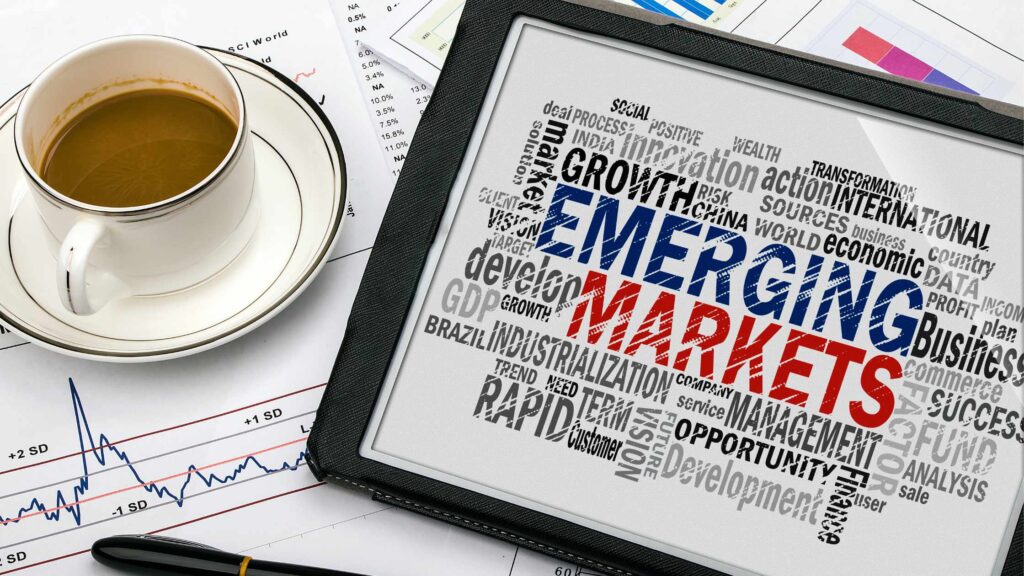Introduction
Emerging markets have become increasingly attractive to investors seeking growth and diversification opportunities. These markets, located in countries with developing economies, offer the potential for higher returns compared to more established markets. However, evaluating and investing in emerging markets requires careful analysis and consideration. In this article, we will explore the factors to consider when evaluating potential opportunities in emerging markets.
Understanding Emerging Markets
Before diving into the evaluation process, it is essential to have a clear understanding of what constitutes an emerging market. Emerging markets are typically characterized by rapid economic growth, transitioning political systems, and industrialization. These markets encompass countries with economies that are developing but not yet considered fully developed. Examples of emerging markets include Brazil, China, India, and South Africa.
Evaluating Economic Indicators
One of the crucial steps in evaluating potential opportunities in emerging markets is analyzing economic indicators. These indicators provide insights into the overall health and stability of an economy. The following are some key economic indicators to consider:
GDP Growth
Gross Domestic Product (GDP) growth measures the increase in a country’s economic output. Higher GDP growth rates indicate a growing economy with increasing business activities, which can signal potential investment opportunities.
Inflation Rate
Inflation refers to the rate at which the general price level of goods and services is rising. High inflation can erode the purchasing power of a currency and negatively impact investment returns. Therefore, it is crucial to consider the inflation rate when evaluating emerging market opportunities.
Political Stability
Political stability plays a crucial role in determining the investment climate of a country. A stable political system reduces the risk of sudden policy changes, nationalization, or social unrest, thereby providing a more favorable environment for investors.
Currency Exchange Rates
Fluctuating currency exchange rates can significantly impact investment returns. Evaluating the stability of a country’s currency and its relationship with major international currencies is essential when investing in emerging markets.
Analyzing Market Potential
Apart from economic indicators, it is essential to analyze the market potential of a specific emerging market. Factors to consider when evaluating market potential include:
Market Size and Growth
The size of the market and its growth potential are crucial factors to assess. A large and expanding market signifies a greater demand for goods and services, which can present attractive investment opportunities.
Consumer Demographics and Behavior
Understanding the demographics and behavior of the target consumers is vital for success in emerging markets. Consumer patterns, purchasing power, and cultural preferences influence the demand for specific products and services.
Competitive Landscape
Analyzing the competitive landscape helps determine the market dynamics and potential challenges. Assessing the existing competition and barriers to entry will provide insights into the viability of investment opportunities.
Regulatory Environment
The regulatory environment imposed by the government can significantly impact investment decisions. Understanding the legal and regulatory framework of an emerging market is crucial for navigating potential risks and compliance requirements.
Managing Risks in Emerging Markets
Investing in emerging markets entails certain risks, and it is essential to have a risk management strategy in place. Some common risks associated with investing in emerging markets include:
Political Risk
Emerging markets may experience political instability, corruption, or legislative changes that can affect investment returns. Conducting thorough research and understanding the political climate will help mitigate political risks.
Currency Risk
Fluctuating currency exchange rates can impact investment returns, especially if the local currency depreciates against the investor’s home currency. Investors can manage this risk through hedging strategies or diversification.
Liquidity Risk
Emerging markets may have less liquidity compared to developed markets, making it challenging to buy or sell investments quickly. Investors should carefully consider the liquidity risk associated with investing in these markets.
Market Volatility
Emerging markets can be more volatile than established markets due to factors such as geopolitical tensions or economic uncertainties. Developing a long-term investment strategy and maintaining a diversified portfolio can help manage market volatility.
Summary
Investing in emerging markets provides potential opportunities for growth and diversification. However, evaluating these opportunities requires careful analysis of economic indicators, market potential, and risk factors. By considering factors such as GDP growth, inflation rate, political stability, and market size, investors can make informed decisions and navigate the unique challenges of investing in emerging markets. Proper risk management strategies are also crucial to mitigate political, currency, liquidity, and market volatility risks. With thorough evaluation and informed decision-making, investors can capitalize on the potential benefits of emerging markets.







